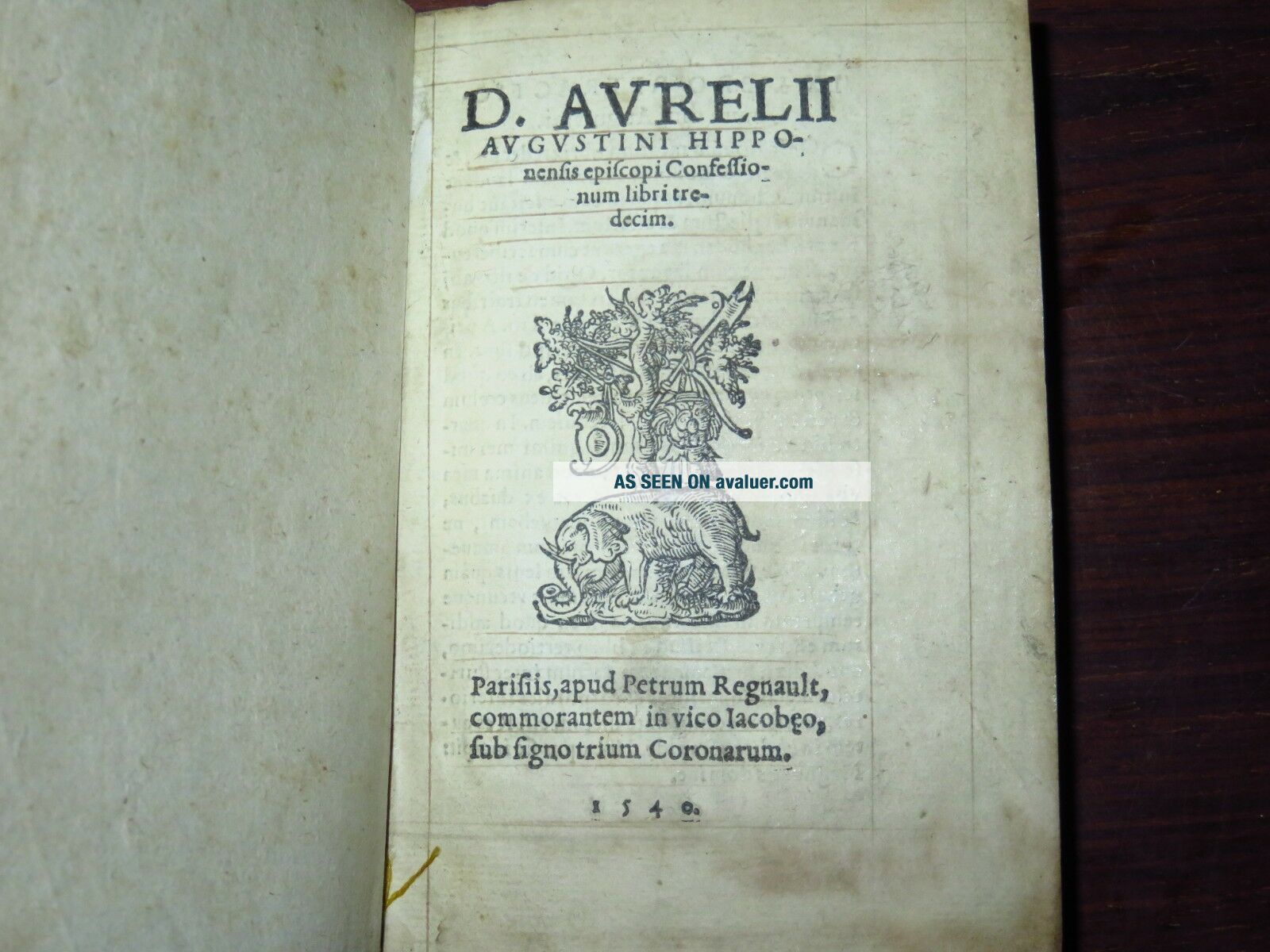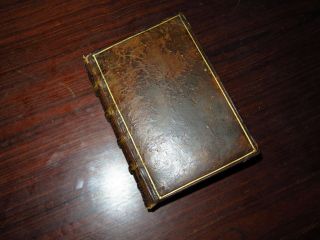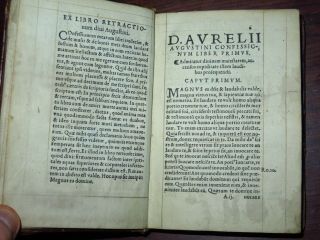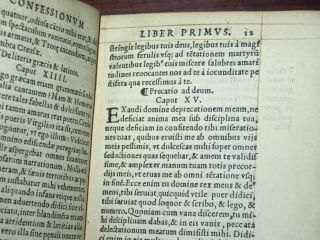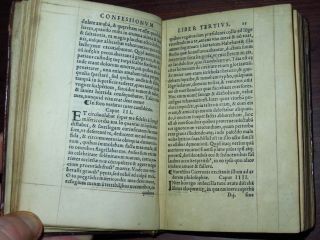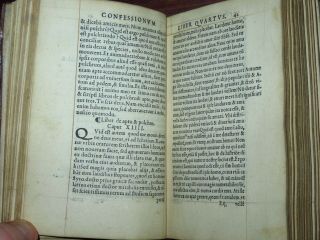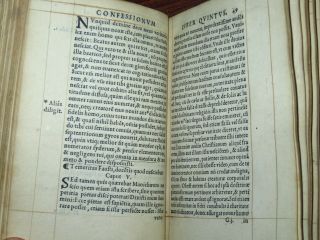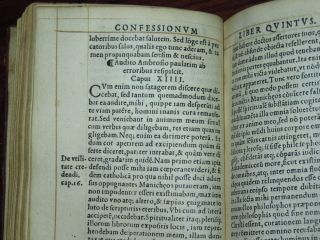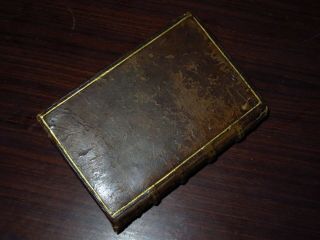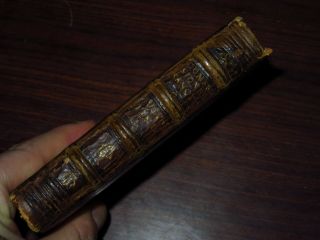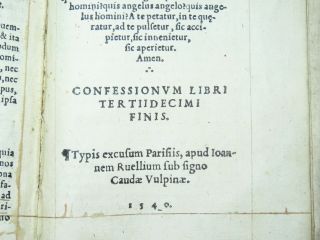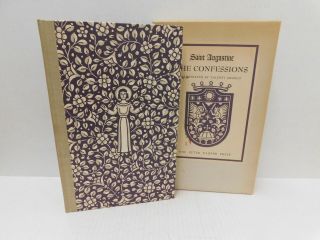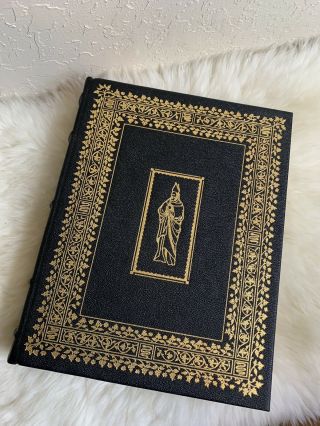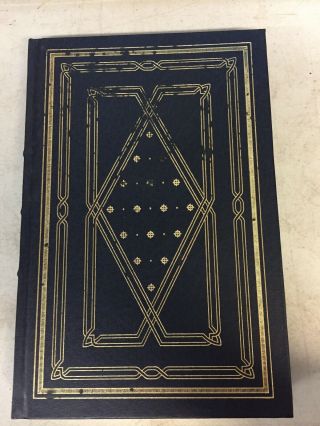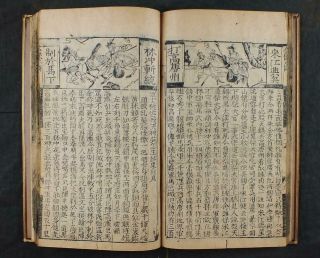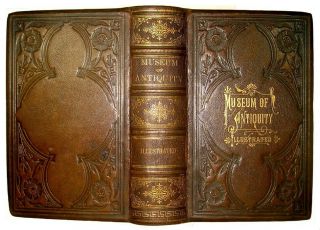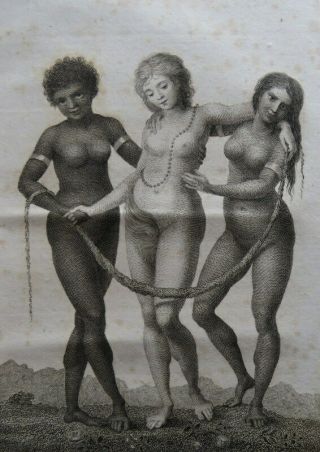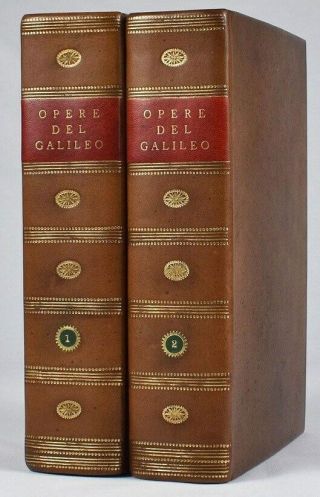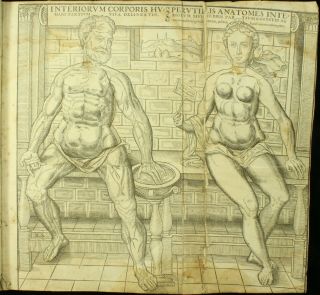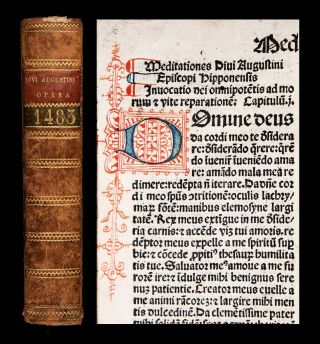1540 Saint Augustine " THE CONFESSIONS " Rare Ed. Of This Masterpiece P - INCUNABLE
Item History & Price
TITLE:
D. Aurelii Augustini Hipponensis episcopi
Confessionum libri tredecim.
Parisiis (Paris) : Apud Petrum Regnault, commorantem in vico Iacobaeo, sub signo trium coronarum, 1540.
Small In 8vo (13 x 9 cm)
Contemporary binding in full leather (Solid, with small lacks and restorations on spine).
COMPLETE: 208 leaves.
Signature: A-2C⁸
Printer's device on the title page : elephant device.
Good antiquarian conditions: some brownings and redness.
EXTREMELY RARE EDITION OF THIS MASTERPIECE
Confessions (Latin: Confessiones) is the name of an autobiographical work, consisting of 13 books, by Saint Augustine of Hippo, written in Latin between AD 397 and 400.The work outlines Saint Augustine's sinful youth and his conversion to Christianity. Modern English translations of it are sometimes published under the title The Confessions of Saint Augustine in order to distinguish the book from other books with similar titles. Its original title was Confessions in Thirteen Books, and it was composed to be read out loud with each book being a complete unit.
Confessions is generally considered one of Augustine's most important texts. It is widely seen as the first Western autobiography ever written, and was an influential model for Christian writers throughout the Middle Ages. Professor Henry Chadwick wrote that Confessions will "always rank among the great masterpieces of western literature".
The work is not a complete autobiography, as it was written during Saint Augustine's early 40s and he lived long afterwards, producing another important work. Nonetheless, it does provide an unbroken record of his development of thought and is the most complete record of any single person from the 4th and 5th centuries. It is a significant theological work, featuring spiritual meditations and insights.
In the work, Augustine writes about how much he regrets having led a sinful and immoral life. He discusses his regrets for following the Manichaean religion and believing in astrology. He writes about Nebridius's role in helping to persuade him that astrology was not only incorrect but evil, and Saint Ambrose's role in his conversion to Christianity. The first nine books are autobiographical and the last four are commentary and significantly more philosophical. He shows intense sorrow for his sexual sins, and writes on the importance of sexual morality. The books were written as prayers to God, thus the title, based on the Psalms of David; and it begins with "For Thou hast made us for Thyself and our hearts are restless till they rest in Thee." The work is thought to be divisible into books which symbolize various aspects of the Trinity and trinitarian belief.
Confessions was not only meant to encourage conversion, but it offered guidelines for how to convert. Saint Augustine extrapolates from his own experiences to fit others' journeys. Augustine recognizes that God has always protected and guided him. This is reflected in the structure of the work. Augustine begins each book within Confessions with a prayer to God. For example, both books VIII and IX begin with "you have broken the chains that bound me; I will sacrifice in your honor." Because Augustine begins each book with a prayer, Albert C. Outler, a Professor of Theology at Southern Methodist University, argues that Confessions is a "pilgrimage of grace [...] [a] retrac[ing] [of] the crucial turnings of the way by which [Augustine] had come. And since he was sure that it was God’s grace that had been his prime mover in that way, it was a spontaneous expression of his heart that cast his self-recollection into the form of a sustained prayer to God." Not only does Confessions glorify God but it also suggests God’s help in Augustine’s path to redemption.
Written after the legalization of Christianity, Confessions dated from an era where martyrdom was no longer a threat to most Christians as was the case two centuries earlier. Instead, a Christian’s struggles were usually internal. Augustine clearly presents his struggle with worldly desires such as lust. Augustine’s conversion was quickly followed by his ordination as a priest in AD 391 and then appointment as bishop in AD 395. Such rapid ascension certainly raised criticism of Augustine. Confessions was written between AD 397–398, suggesting self-justification as a possible motivation for the work. With the words "I wish to act in truth, making my confession both in my heart before you and in this book before the many who will read it" in Book X Chapter 1, Augustine both confesses his sins and glorifies God through humility in His grace, the two meanings that define "confessions, " in order to reconcile his imperfections not only to his critics but also to God.
Much of the information about Augustine comes directly from Augustine’s own writing. Augustine’s Confessions provide significant insight into the first thirty-three years of his life. Augustine does not paint himself as a holy man, but as a sinner. The sins that Augustine confesses are of many different severities and of many different natures, such as lust/adultery, stealing, and lies. For example, in the second chapter of Book IX Augustine references his choice to wait three weeks until the autumn break to leave his position of teaching without causing a disruption. He wrote that some "may say it was sinful of me to allow myself to occupy a chair of lies even for one hour." In the introduction to the 1961 translation by R.S. Pine-Coffin he suggests that this harsh interpretation of Augustine’s own past is intentional so that his audience sees him as a sinner blessed with God’s mercy instead of as a holy figurehead.
Due to the nature of Confessions, it is clear that Augustine was not only writing for himself but that the work was intended for public consumption. Augustine’s potential audience included baptized Christians, catechumens, and those of other faiths. Peter Brown, in his book The Body and Society, writes that Confessions targeted "those with similar experience to Augustine’s own." Furthermore, with his background in Manichean practices, Augustine had a unique connection to those of the Manichean faith. Confessions thus constitutes an appeal to encourage conversion.
Saint Augustine of Hippo (/ɔːˈɡʌstɪn/; 13 November 354 – 28 August 430 AD) was a Roman African, early Christian theologian and philosopher from Numidia whose writings influenced the development of Western Christianity and Western philosophy. He was the bishop of Hippo Regius in north Africa and is viewed as one of the most important Church Fathers in Western Christianity for his writings in the Patristic Period. Among his most important works are The City of God, On Christian Doctrine and Confessions.
According to his contemporary Jerome, Augustine "established anew the ancient Faith". In his youth he was drawn to Manichaeism and later to neo-Platonism. After his baptism and conversion to Christianity in 386, Augustine developed his own approach to philosophy and theology, accommodating a variety of methods and perspectives. Believing that the grace of Christ was indispensable to human freedom, he helped formulate the doctrine of original sin and made seminal contributions to the development of just war theory. When the Western Roman Empire began to disintegrate, Augustine imagined the Church as a spiritual City of God, distinct from the material Earthly City. His thoughts profoundly influenced the medieval worldview. The segment of the Church that adhered to the concept of the Trinity as defined by the Council of Nicaea and the Council of Constantinople closely identified with Augustine's On the Trinity.
Augustine is recognized as a saint in the Catholic Church, the Eastern Christian Church, and the Anglican Communion and as a preeminent Doctor of the Church. He is also the patron of the Augustinians. His memorial is celebrated on 28 August, the day of his death. Augustine is the patron saint of brewers, printers, theologians, the alleviation of sore eyes, and a number of cities and dioceses. Many Protestants, especially Calvinists and Lutherans, consider him to be one of the theological fathers of the Protestant Reformation due to his teachings on salvation and divine grace. Protestant Reformers generally, and Martin Luther in particular, held Augustine in preeminence among early Church Fathers. Luther himself was, from 1505 to 1521, a member of the Order of the Augustinian Eremites.
In the East, his teachings are more disputed, and were notably attacked by John Romanides. But other theologians and figures of the Eastern Orthodox Church have shown significant appropriation of his writings, chiefly Georges Florovsky. The most controversial doctrine associated with him, the filioque, was rejected by the Orthodox Church. Other disputed teachings include his views on original sin, the doctrine of grace, and predestination. Nevertheless, though considered to be mistaken on some points, he is still considered a saint, and has even had influence on some Eastern Church Fathers, most notably Saint Gregory Palamas. In the Orthodox Church his feast day is celebrated on 15 June. Historian Diarmaid MacCulloch has written: "[Augustine's] impact on Western Christian thought can hardly be overstated; only his beloved example Paul of Tarsus, has been more influential, and Westerners have generally seen Paul through Augustine's eyes.



